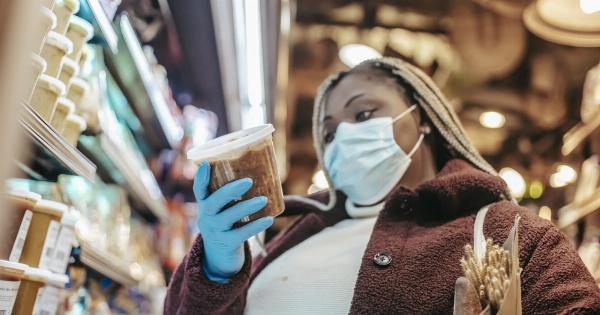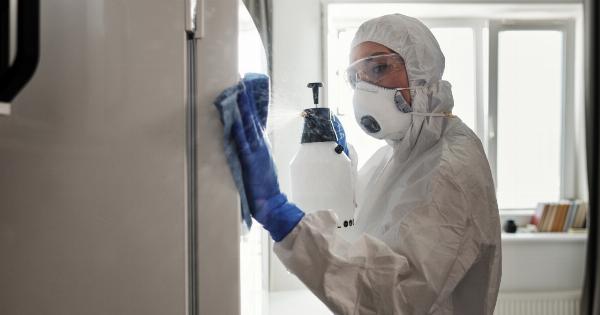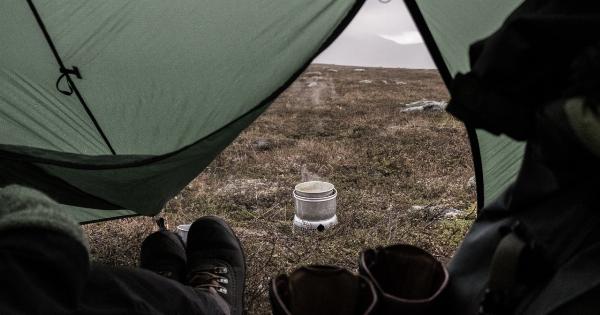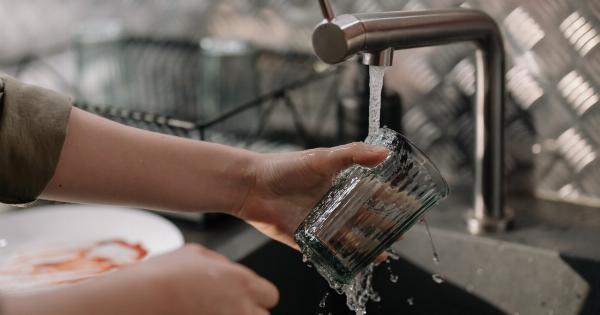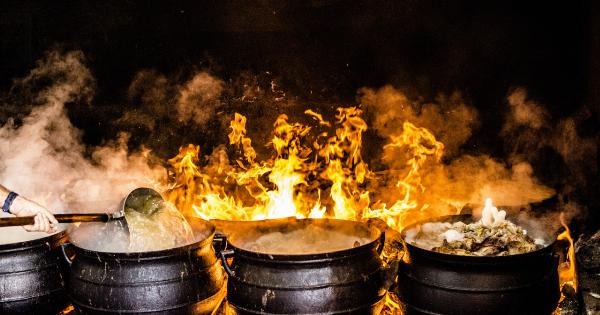Easter is a time of joy, celebration, and family gatherings. One of the most significant moments during Easter celebrations is gathering around the table for a meal. However, adding to the festive mood comes the danger of grease.
Typically, our meals are not only delicious but can also be very greasy, and with everyone gathered around the same table sharing different dishes, it’s easy to overlook the potential grease hazard. Keeping safety in mind, here are ways you can minimize the danger posed by grease in your Easter meals:.
1. Clean Cooking Surfaces Before Use
It’s essential to start cooking on a surface that’s clean and free from any grease or oil residue.
This is not only good practice, but it also ensures that your food will not stick to the cooking surface, causing further spills and splatters. So, before your Easter meal preparations begin, it’s essential to give your cooking surfaces a thorough clean. Using paper towels or a clean cloth, wipe down all surfaces, including stovetop, countertops, and even the oven.
A clean cooking surface will help reduce the spread of unnecessary grease during preparation.
2. Use Cooking Implements To Catch Grease
Cooking implements such as pans, pots, and baking sheets will catch much of the grease that your meal may produce. Before using any kitchen equipment, prepare by placing a sheet of aluminum foil or baking paper over it to help catch any grease.
Moreover, having a baking sheet under roasted meats such as the turkey can help collect the grease that may come out during cooking and avoid dripping your oven.
3. Avoid Splash Hazards: Use Splatter Screens
When you’re cooking with oils and fats, it’s not just the spills that you should be worried about but also the splatters. Splatters caused by grease are tricky to evade, but they’re preventable when using a splatter screen.
A splatter screen is a jar lid-shaped kitchen gadget placed over pots or frying pans to prevent the oil and fats from spilling all over the stove or countertop. This gadget is a great investment since you can use it on any other day when cooking with high fat content meals such as bacon and deep-frying.
4. Proper Fry Pan Use and Technique
Frying pans are the culprits when it comes to grease spills during meal preparation. When using a frying pan, be sure to avoid overcrowding the pan since it traps steam causing your food to release more moisture, which in turn causes spatters.
It is a good idea to watch the temperature; Grease splatters when oil gets hot, shrinks back as it cools, and then sizzles when another piece of food is added. It’s important to keep the heat lowered so it’s less likely to become extreme.
Before adding eggs or similar foods to your frying pan for Easter morning breakfast, heat your pan slowly to give it the time to absorb the heat evenly ready for any egg cooking technique you’d like to try.
5. Have A Grease Disposal Container
Using a grease container or can also help reduce potential grease hazards. After your meal preparations, you’ll find you have an excess amount of grease leftover when frying, roasting, or grilling.
Avoid the temptation to pour the hot liquid down the drain, which could cause blockage further down the line. Instead, pour the grease into a sealable grease container, allow it to cool fully, then discard it in the trash after ensuring it’s tightly sealed.
This will save you from grease spitting in the garbage and the potential of your bag tearing, causing an unnecessary mess.
6. Have cleaning supplies ready
The cliché phrase ” prevention is better than cure” applies even to kitchen hygiene. Before you even start the cooking process, it’s crucial to prepare yourself with cleaning supplies.
Ensure you have an adequate supply of dishwashing liquid, paper towels, and a mop, ready to tackle any grease-related spills that come your way. Ensure you have enough cleaning supplies for all areas of the kitchen, including the stovetop, countertops, and floors, so that you’re ready to handle any mess quickly and efficiently.
7. Invest in Grease Proof Aprons and Oven Gloves
Having a well-equipped kitchen provides a safer environment to cook in. You can help minimize the risk of getting burnt or soiled by the grease by investing in kitchen apparel that can avoid absorbing grease.
Purchase aprons and oven gloves that are grease and heat proof. In case of grease spillage, you will be protected from having any grease sticking to your clothing – making kitchen cleanup easier and reducing the risk of injury or burnt skin.
8. Avoid the use of Water When Dealing With Grease
Water may seem like the primary cleaning solution when it comes to kitchen cleaning, but it’s not always applicable when dealing with grease.
When there’s a spill, avoid the use of water, as it causes the oil to spread and become more slippery. Instead, use paper towels or a dry cloth to soak up the spill first. Once you’ve soaked up the visible grease spill, then apply some dishwashing liquid to help the cleanup process.
Always clean up any grease spills promptly to avoid unnecessary accidents.
9. Position Your Cooktop To Avoid Accidents
The placement of your cooktop plays a significant role in kitchen safety. Arrange your cooktop away from the hallway or areas where large crowds gather during meal preparation.
It significantly reduces burn accidents that can occur from family members brushing up against pots or pans from the cooktop. Moreover, placing your cooktop near the sink is not ideal – the water from the sink may splash onto your cooking surface, causing potential hazard cooking with hot grease or oil.
10. Remember Cleaning Up Reduces Potential Risks
Grease is a hazard that can cause kitchen fires, slips, trips, and falls, just to mention a few. Cleaning may seem like a boring chore, but it significantly reduces the potential hazards that come with leftover grease in your kitchen.
After every meal preparation, make sure to perform a deep clean of your surfaces, appliances and equipment that have been exposed to grease and oils. Celebrating Easter is a time for fun and celebration with family. It’s essential that we keep everyone’s wellbeing in our minds and work towards preventing any potential dangers that may occur in the kitchen keeping safety guidelines in check.










